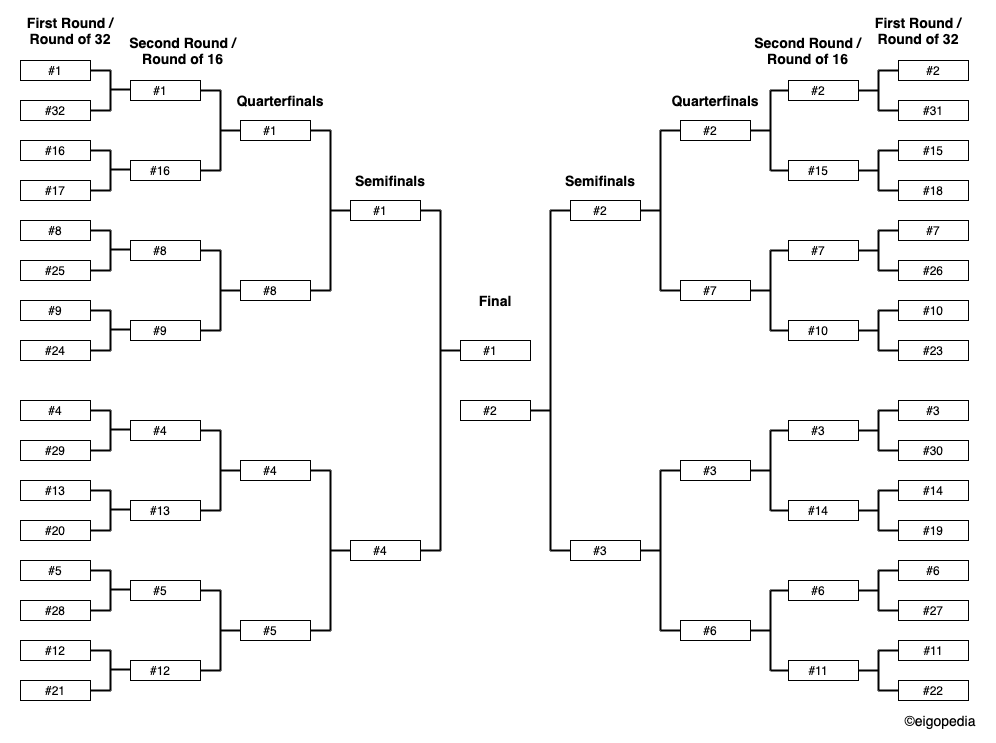「残っている8チーム 」ではなく、「残っている8チームによる4つの試合」を表す為、「quarterfinals」になります。同様に、「準決勝」は「1/2」という意味を持つ接頭辞「semi」を使用して、「semifinals」となります。
因みに、32チーム出場のトーナメントの場合、「第一回戦」のことは「first round」または、「round of 32」といい、「第2回戦」のことを「second round」または、「round of 16」といいます。
難易度:7/10
関連リンク:「試合」という意味を持つ「game」と「match」ですが、使い方に違いはありますか?
